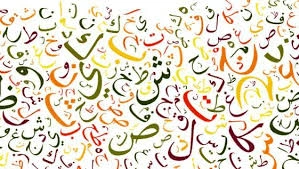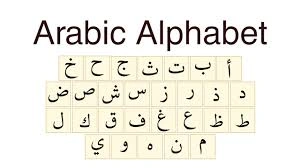
It is important for other speakers to understand the basic rules of Arabic
A photo from an Azerbaijani newspaper from 1925
which featured a cartoon showing an Arab man sticking out his tongue at two people, a Turk and a Persian, with the caption: “Stop it, idiots! Give me back my tongue…” in it. A large collection of Arabic words in the Turkish and Persian languages is indicated.
“Sadiq Atagul” who is a professor of Islamiyat at Gaziantep University, Turkey, says: “The Arabic language has had a profound influence on the Turkish language throughout history, to the extent that the proportion of Arabic terms used in Turkey is about 70%
has been reached.”
Similarly, about 60% of the words in the Persian language today are of Arabic origin. The abundance of Arabic words in Persian forced Persian speakers to understand the Arabic rules in order to better understand the original meanings and derivations of these words. This confirms how strong and influential the Arabic language is.
The same can be said about the Urdu language. About 30 to 40 percent of the words in Urdu language have been borrowed from Arabic. Urdu speakers are often not fully aware of the real meanings and rules of these Arabic words.
Just as Persian speakers learn Arabic rules in order to better understand the Arabic words in their language, it is important for Urdu speakers to understand the basic rules of Arabic in order to understand the Arabic words in Urdu. Know the correct meaning and usage
Urdu language, in which English has been heavily mixed nowadays, is losing its original identity. People are no longer able to make complete sentences in Urdu because they do not have proper knowledge of the rules of Urdu.
Our education system is also leaning more towards English than Urdu, due to which the coming generations are moving away from Urdu. If this continues, Urdu will also join the list of languages that have lost their identity. Therefore, I have decided to leave English and write in complete Urdu, so that I can protect my language
This is the reason why for Urdu speakers, learning Arabic is not only useful for religious or academic purposes, but also for the proper understanding of their own language.
Arabic keyboard
An Arabic keyboard layout is designed for typing in the Arabic script. The main differences from the standard QWERTY keyboard are that Arabic characters are mapped to the keys and often use right-to-left writing direction. Arabic keyboards typically have keys for letters like “ا” (alef), “ب” (baa), and “ت” (taa), along with numerals that can also be displayed in Arabic format.
If you’re using a computer or mobile device, you can typically switch to an Arabic keyboard by changing the language settings. Here’s a general guide:
On Windows:
Go to Settings.
Click Time & Language.
Go to Language, then click Add a language.
Search for Arabic, select it, and click Next.
After adding it, you can switch between keyboards using the Language Bar or Alt + Shift.
On macOS:
Go to System Preferences.
Select Keyboard, then click the Input Sources tab.
Click the + button and choose Arabic.
You can switch between keyboards using Command + Space.
On iPhone/iPad (iOS):
Go to Settings.
Tap General, then Keyboard.
Tap Keyboards, then Add New Keyboard.
Choose Arabic from the list.
On Android:
Go to Settings.
Select System, then Languages & Input.
Tap Virtual Keyboard and select your current keyboard.
Tap Languages, then Add Keyboard.
Select Arabic from the list.
Once set up, you can switch to the Arabic keyboard whenever you need to type in Arabic.
CONCLUSION:
FAQ:
What is the main Arabic language?
The main form of Arabic is Modern Standard Arabic (MSA). It is used in formal settings such as news, literature, and official documents across the Arab world. Another important form is Classical Arabic, the language of the Qur’an, which is still used in religious contexts.
Which country speaks Arabic?
Arabic is spoken in 22 countries that are part of the Arab League, including:
Saudi Arabia
Egypt
Iraq
Morocco
United Arab Emirates
Lebanon
Jordan
Tunisia …and others in the Middle East and North Africa.
What is called Arabic language?
The Arabic language is called “العربية” (al-‘Arabiyya) in Arabic, which simply means “Arabic.”
What language is Arabic like?
Arabic is similar to other Semitic languages, particularly Hebrew and Aramaic, as they share common linguistic roots, grammar structures, and vocabulary.
What country is Arabic from?
Arabic originated on the Arabian Peninsula, particularly in what is now Saudi Arabia. It spread with the rise of Islam in the 7th century and became the dominant language of the Arab world.
Is Arabic a language or ethnicity?
Arabic is primarily a language, but the term “Arab” can also refer to an ethnicity. People who identify as Arabs typically speak Arabic and share cultural and historical ties, but they come from various regions, religions, and ethnic backgrounds.
What language is عربي?
“عربي” (pronounced “‘Arabi”) refers to Arabic itself, as the word means “Arabic” in the Arabic language.
Who are considered Arabic?
People who are considered Arabic (or Arabs) are those who:
Speak the Arabic language as their native tongue
Identify culturally with Arab traditions
Typically come from Arab countries in the Middle East and North Africa.
Being Arab can also involve shared cultural, religious (predominantly Islam), and historical aspects, but not all Arabs are Muslims, and not all Muslims are Arabs.

What are the qualities of a good wife?

Uydu sinyal sorunu çözümü Malatya Çanak anten arızamı hemen giderdiler, çok profesyoneller. https://worldnet.asia/blogs/374/Malatya-uyducu-Uydu-Tamiri
Thinker Pedia I really like reading through a post that can make men and women think. Also, thank you for allowing me to comment!
Thinker Pedia Nice post. I learn something totally new and challenging on websites
Blue Techker Great information shared.. really enjoyed reading this post thank you author for sharing this post .. appreciated
BWER Company provides Iraq’s leading-edge weighbridge solutions, designed to withstand harsh environments while delivering top-tier performance and accuracy.
BWER sets the standard for weighbridge excellence in Iraq, offering innovative, reliable systems and dedicated support to ensure optimal performance and client satisfaction.